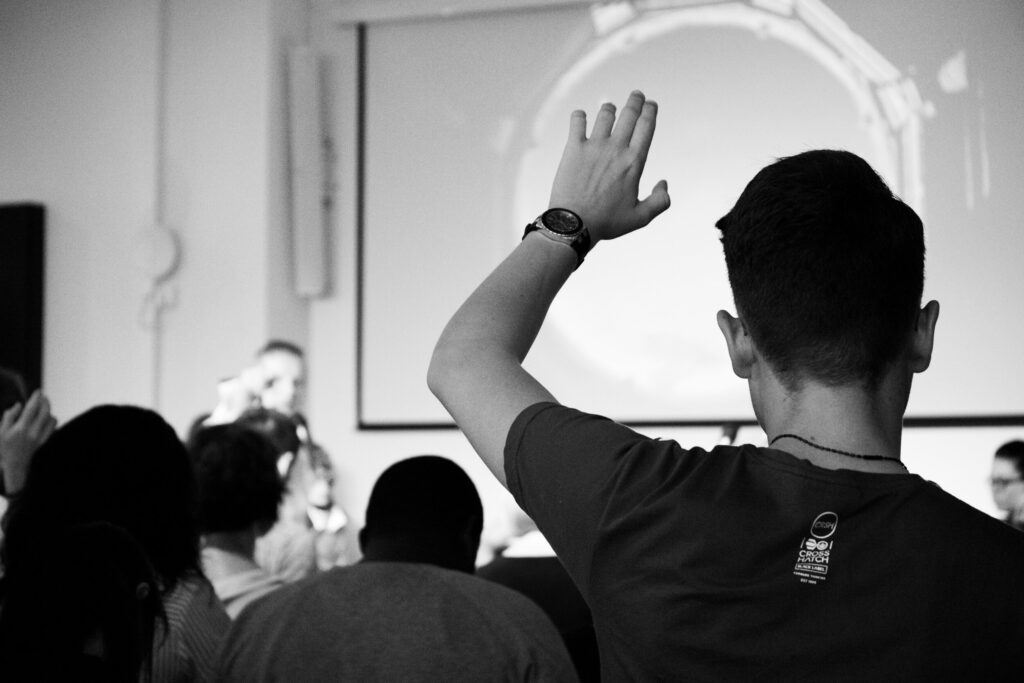To Learn or to Perform?
I dropped out of college twice. At the time, I felt like it was because I was just not a good student- or at least not cut out for the rigor and responsibility of college level academics. College, I determined, just wasn’t the place for me. Fast-forward a few years, and I found myself living in New York, giving college one last try, this time at Columbia. I was in my second semester, writing a term paper for a class in western literature. As I sat in front of my computer, cursor blinking on the blank screen, I realized that I had no interest in delving into a proper “academic” analysis of the text. That simply was not what I cared about. That was not the question I had. I battled back and forth with myself for hours, but eventually decided that if I was going to do this learning thing, it would be to learn- to inquire– not to perform. Instead of writing the academic piece, I explored the questions and conflicts the text had exposed in my own self- where the personal experience of the author intersected my own, through the medium of his work.
Taking that risk resulted in a good grade- but far more importantly I developed a close relationship with my professor and, through his encouragement, continued to follow the pull of inquiry, ultimately finding the strength of my own voice.
While that is a warming story, it raises some serious concerns. This was Columbia, a prestigious university- in a class of universities that prize themselves on the development of independent, critical thinkers- and I was afraid to ask a real question. I was afraid to spend my time learning, rather than performing, because I didn’t believe that learning would be valued. As I look back over my first two college experiences, I see the same fault lines: the academic setting of college was not a place to inquire. That doesn’t mean I didn’t inquire during those first two go-rounds, quite the opposite. In fact, I would say that the inquiry and growth I experienced was maybe even more important my first two times at college than the time I spent at Columbia. It’s just that the exploration happened outside of the classroom, with friends or in school clubs- through deep, honest questions into myself, beliefs, and values.
This crisis of inquiry does not appear limited to higher education. I recently “sat down” on Zoom with several K-12 teachers from different parts of the country, discussing their experience with COVID-19- their needs, their students’ needs, how the education landscape has shifted during this time- but also how the education system’s emphasis on compliance-based evaluation and undervaluation of inquiry-based learning is coming home to roost. As has been talked about elsewhere, online teaching is not simply doing what is done in a physical classroom virtually, but neither is this situation even really online teaching, or home schooling, or any other modality we are familiar with. This is COVID learning– and the realities of COVID learning demand that teachers and students (and parents!) have permission to collaboratively evaluate and prioritize their needs- social-emotional and learning needs alike. It also requires that there is freedom to make content and delivery decisions that support those needs and priorities.
A glaring issue confronting teachers around the country is that the education system is not designed to support this approach, and even if we were to switch to it wholesale, many teachers have not been well prepared to facilitate this type of learning process. This, without even bringing into the equation issues of student accessibility stemming from inequality. The result is that students are voting with their virtual feet and simply not showing up to meetings, teachers are overburdened from not getting the Social-Emotional support they need, and parents are left with the consequences, struggling to confront the gaps in their child’s emotional support while trying to figure out their own well-being.
There is no immediate or easy solution- but we need to start by asking the right questions. To my eye, the first is, “Why have we made education an environment where teachers are afraid to innovate and there’s no space for kids to ask questions about the things that really interest them?” My guess is that in asking this question, we will find that it intersects far more than just the sphere of education; the specter of our societal values may well come into sharp focus. How far are we willing to let our inquiry take us?
Learn more about our teacher certification program and master’s in education programs.
–Andrew Christian, Institutional & Market research



